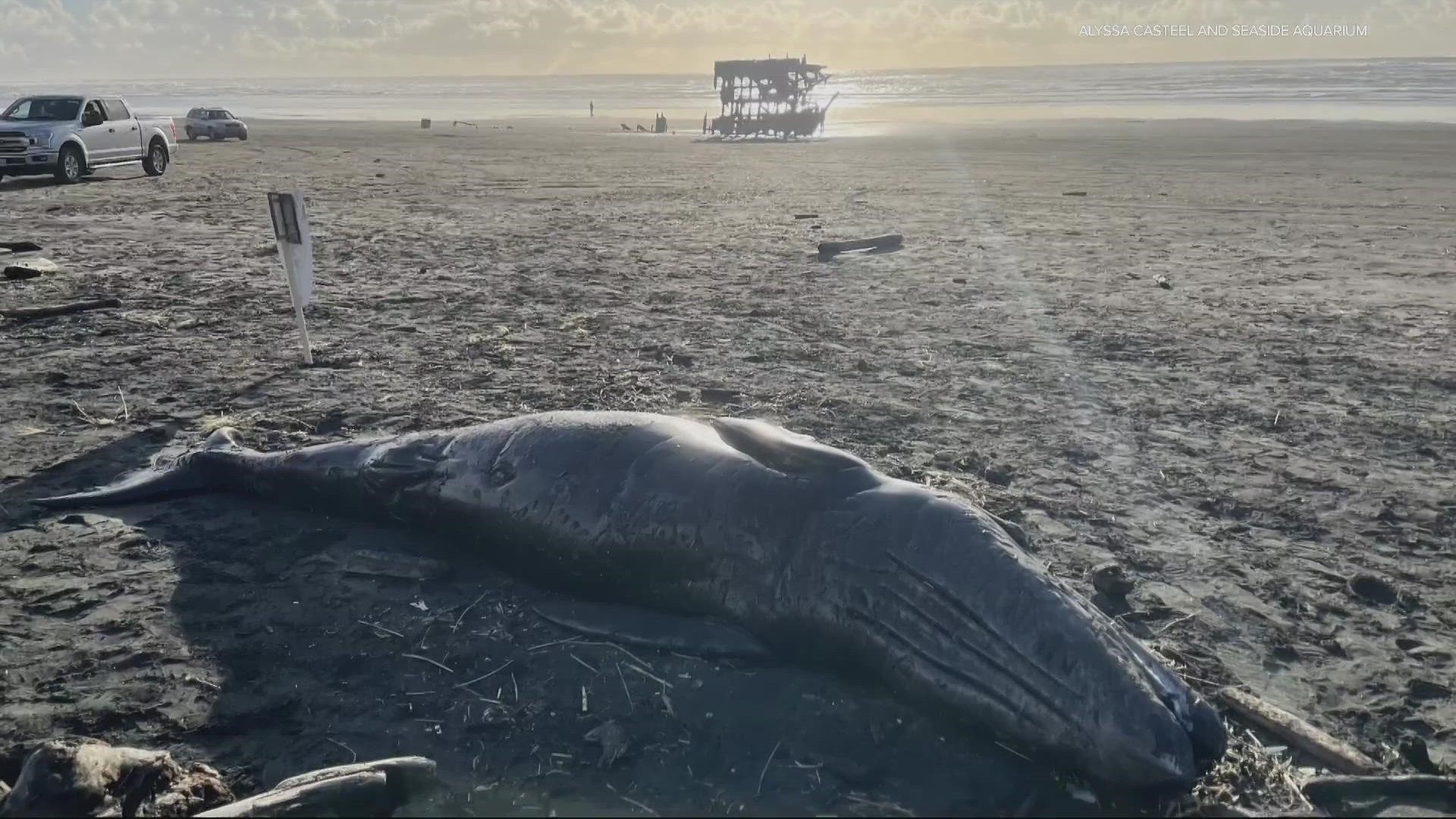PORTLAND, Ore. —
On Jan. 11, a gray whale washed up on the beach of Winchester Bay near Reedsport on the southern Oregon coast.
A few days later, a 40-foot sperm whale came ashore right next to the shipwreck of the Peter Iredale at Fort Stevens State Park.
On Wednesday, another gray whale, this one a calf, washed up just up the beach from the sperm whale.
So with three dead whales appearing on Oregon beaches within a week, should we be concerned?
Not exactly, said Jim Rice, program manager with the Marine Mammal Stranding Network.
He said the first whale appeared to have succumbed to injuries from an attack by killer whales. A necropsy confirmed that the second whale was hit by a ship. Experts haven’t had a chance to examine the third whale, but think it may have either been stillborn or died shortly after birth.
Given that each of the whales died in very different ways, Rice described the timing of their appearances as "pure coincidence" and said each of their deaths appeared to be distinct and unrelated.
The death of the calf could have connections to wider trends among gray whales, though.
The species is in the midst of what scientists call an "unusual mortality event." For the past several years, large numbers of gray whales have been observed with signs of malnourishment and the species has been giving birth to fewer calves.
An exact cause hasn't been determined, but Michael Milstein, a spokesman for the National Oceanic and Atmospheric Administration, said experts think the whales may be responding to environmental changes in the high Arctic, where the whales feed over the summer before they migrate to Mexico to give birth in the winter.
"We know that gray whale strandings have been up the last few years, and in particular we've seen that the number of calves they're producing every year has been way down," Milstein said.
While researchers have not established a firm link between the perils facing gray whales and climate change, it has been well established that the far north is warming at a much faster rate than the rest of the world due to climate change.
Milstein said that the discovery of the dead calf on Wednesday, and a necropsy of the animal scheduled for later this week, could prove beneficial to understanding what's driving the mortality event.
"Anything that helps us understand what's affecting calf survival is something that can help us understand the bigger picture of what's going on with gray whales off the West Coast," he said.

